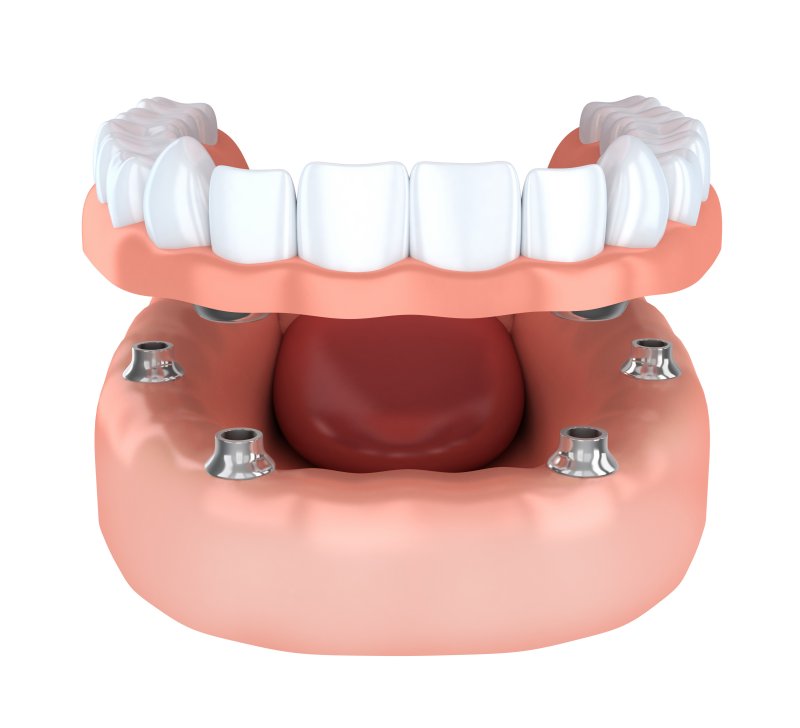
The American College of Prosthodontists estimate that about 178 million Americans have at least one missing tooth, and roughly 40 million have lost all of their teeth. Your first thought might be that you’ll need dentures to solve this problem, but that actually might not be enough to fully maintain good oral health. Here’s what you need to know about bone loss that can occur when teeth are missing – and what the solution might be.
How Do Missing Teeth Lead to Bone Loss?
Did you know that your teeth are an important component for a strong and healthy jaw? The stimulation from chewing helps the jawbone keep its form and density. When a tooth is missing, the unused area of the bone will no longer be maintained and will start to resorb (meaning it breaks down).
If this bone loss isn’t treated or prevented, the remaining teeth can become misaligned or loose; they may eventually be lost altogether. You’ll also have a harder time chewing and speaking properly, and your lips and the skin around your mouth will become wrinkled.
Can Dentures Prevent Bone Loss?
Traditional dentures can help restore functionality to your mouth by helping you talk and eat. However, they don’t affect your jawbone at all, so bone loss will still occur. In fact, a deteriorating jaw can cause your dentures to become ill-fitting and lead to them needing to be replaced.
So What Can I Do to Stop Bone Loss?
Fortunately, there’s another option for tooth replacement that can help prevent bone loss: dental implants. These are metal posts directly inserted into the jaw and topped with a crown or another form of tooth replacement. A natural process called osseointegration joins the implant with the bone; this way, the jaw can continue to receive stimulation from chewing, avoiding resorption. Additionally, the improved stability of an integrated implant allows for more chewing force than traditional dentures.
In some cases, implants can be used to support dentures. That way, you can replace multiple teeth at once while still keeping the jawbone healthy.
Are Dental Implants Right for Me?
For dental implants to be successful, there needs to be enough jawbone still present for osseointegration to take place; in other words, they may not be viable if bone loss has already progressed too far. That said, in some cases bone grafts can be used to add extra height to the jawbone in order to make the treatment more likely to work.
If you’re suffering from missing teeth, speak with your dentist and ask about the various tooth replacement options available; they’ll examine your oral health and come up with a plan that’s right for you. Make the best choice for your continued oral health!
About the Author
Dr. Rob Schumacher has been practicing dentistry for over 14 years; he enjoys being able to express his artistic abilities with restorative dentistry while helping patients improve their health. He’s a board-certified prosthodontist with expertise in implants and other forms of tooth replacement. To schedule an appointment at his practice in Wakefield, Schumacher Dental, visit his website or call (781) 334-3400.
